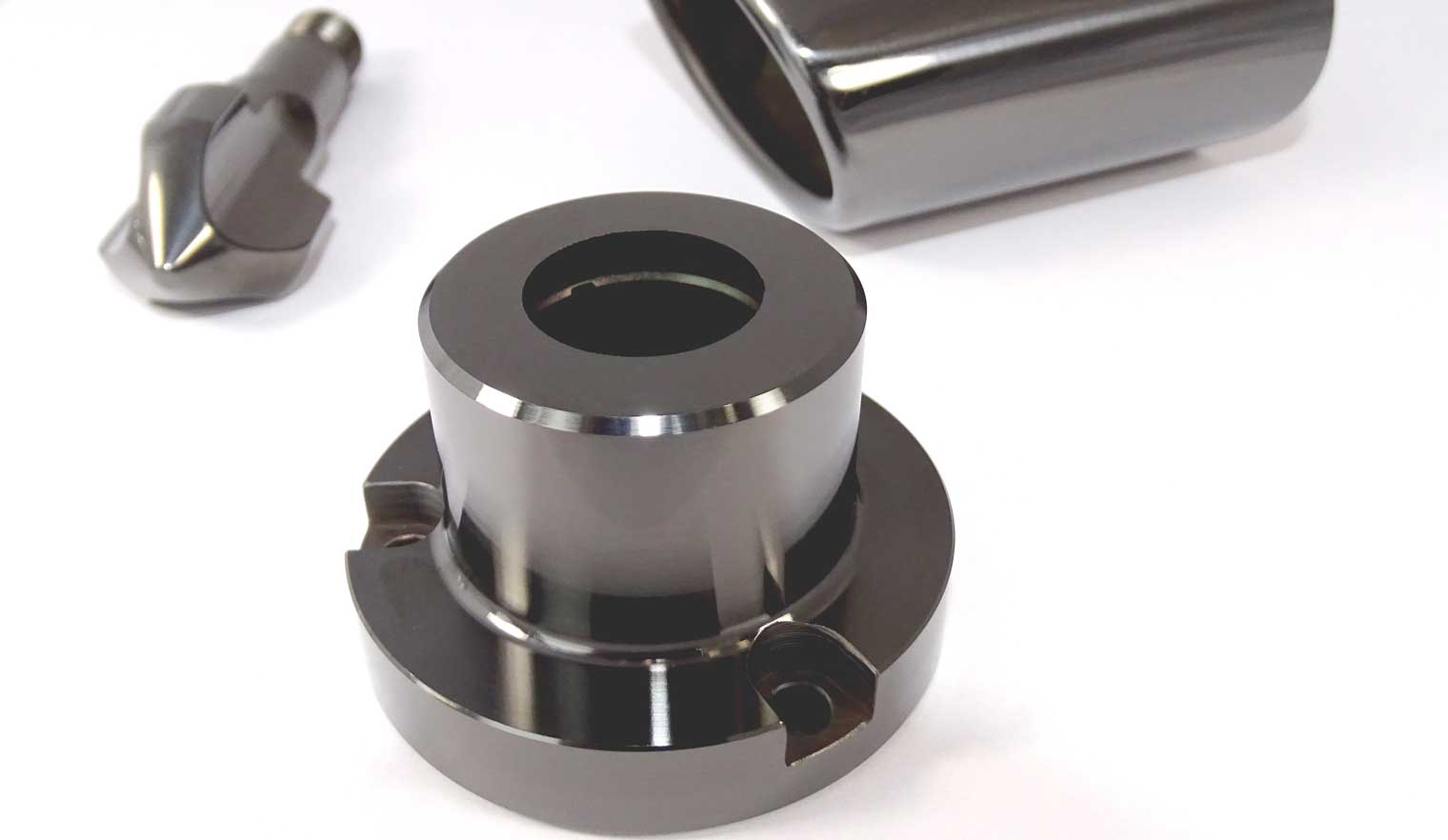Limitless DLC Carbon Coats
Thanks to their numerous positive material properties, our diamond-like carbon coats are exceptionally well suited for high-quality applications in many different industries and the use in various areas of application.
- Tribological applications
Thanks to outstanding wear resistance combined with excellent friction and anti-adhesion properties, our DLC coatings are the ideal solution for the refinement of construction elements and components subject to high levels of tribological stress – meaning surfaces in relative motion effecting each other. In many areas of mechanical engineering, for instance, one needs parts whose surfaces are not only low in friction but also extremely hard and durable. The typical areas of application of these carbon coating systems are: Sliding and roller bearings, engine and gearbox components (e.g. piston rods, camshafts, worm drives, cogs, valves, piston rings and bolts …), automotive small batch parts, hydraulic and pneumatic components, sealing and guiding elements as well as micro-mechanical components.
-
- Mechanical engineering
- Engine
- Automotvie industry
- Motor sports
- Aviation industry
- Micro-mechanics
- Plastic Processing
In plastic processing, DLC coating systems are used in many areas along the entire production process – from injection moulding through cutting and extrusion to removal from the mould. Especially in injection moulding and particularly in thermoplastic processing, more and more moving parts are being protected with anti-friction carbon coats and can thus operate without lubrication and are entirely maintenance-free. No matter if it’s injection moulds or tools, sliding surfaces on mechanically engineered parts, forming areas, cores, slides or injectors – DLC coatings reduce mould contamination, wear due to abrasive plastic and surface corrosion, yields significantly improved removal from the mould and increase the dry and emergency running properties of tools and construction elements. This allows for prolonged endurance at reduced maintenance intervals and a significant rise in productivity.
-
- Injection moulding
- Extrusion
- Plastic machining
- Metal machining
Thanks to the low deposition temperatures of diamond-like carbon, coating of non-ferrous metals poses no challenges whatsoever. Thus, DLC coating systems are excellently suited for materials such as aluminium, brass, copper or low-tempered steels. Especially in the area of forming and machining tools for aluminium machining, the use of DLC coatings has gained importance due to the fact that they prevent galling and reduce flash during the cutting of aluminium sheets.
-
- Aluminium
- Non-ferrous metals such as brass, copper …
- Low-tempered steels
- Visual refinement, design and decoration
Not everything that glitters is necessarily gold! Their deep black colour, clean and shiny looks and very smooth surface feel make diamond-like carbon coats a very popular choice in the areas of decorative design applications – for instance for spectacle frames, scissors, knives, watch casings and similar small parts. Thanks to their excellent wear resistance, one can expect that no abrasive wear occurs under normal wearing conditions. Moreover, the bio-compatible and allergy-neutral DLC coatings increase wearing comfort through to their skin-friendliness.
- Medical technology
Through highest degrees of hardness, exceptionally low friction and excellent abrasion resistance, DLC coats are particularly well suited for use in medicine and medical technology – from instruments to medical equipment and devices to implants. DLC coatings are bio-compatible and meet the relevant medical acceptance criteria. Through applying the deep black DLC carbon coats to medical instruments, one can furthermore largely rule out distracting reflection. Moreover, the coats’ high chemical resistance allows for an unlimited number of sterilisation cycles.
- Food industry
Due to their bio-compatibility and chemical resistance, DLC coatings are also used in the food industry. They protect construction components in food technology against abrasive wear, pitting and corrosion.


